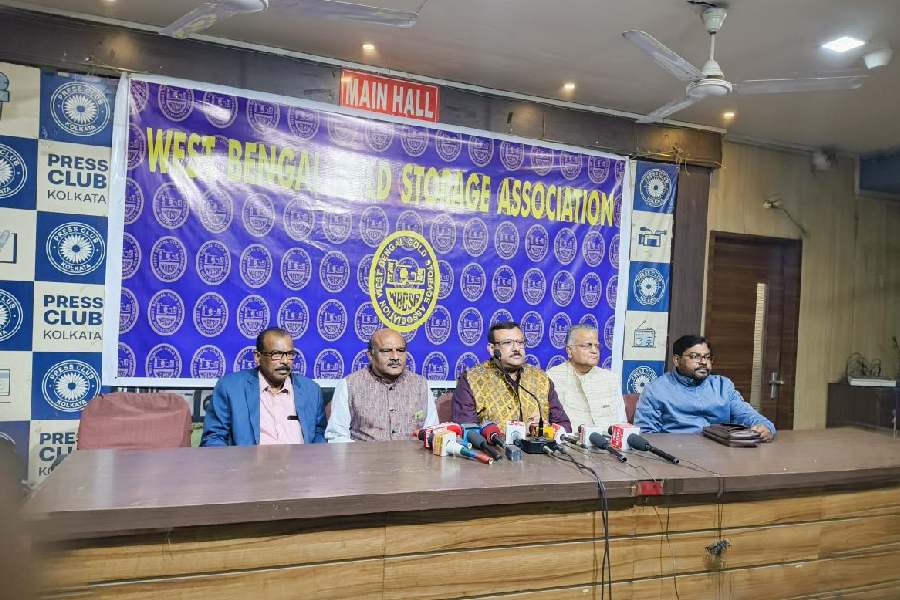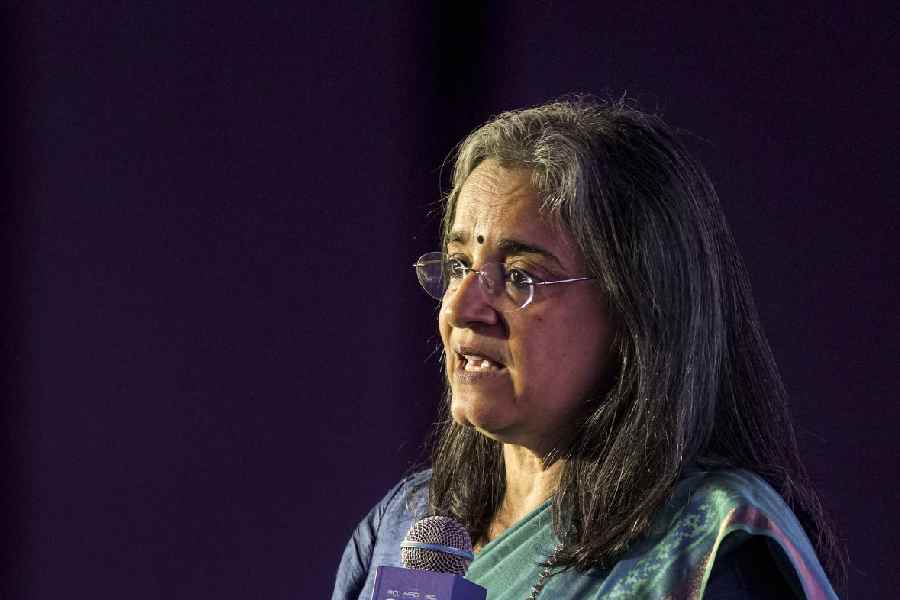Bengal's cold storage owners on Tuesday demanded that the state government immediately lift the ban on interstate potato trade to prevent potential losses to farmers and the industry.
They claimed that 4.1 lakh tonnes of potatoes were stored in cold chains across the state, which was almost double the amount that Bengal could consume till December-end. They said the situation would worsen when a new crop of potatoes would flood the market by the year-end.
“When we met with government officials on December 1, the stock of potatoes in cold storage was around 6.2 lakh tonnes, which means only about two lakh tonnes of potatoes were needed in 16 days. So, we demand that the ban on interstate trade be withdrawn, as the state can barely consume 2 lakh tonnes of potatoes in the remaining 15 days,” said Subhajit Saha, the vice-president of the West Bengal Cold Storage Association.
The association's claim assumes significance, as it sharply contrasts with the government's reasoning behind the decision to ban the trade of potatoes outside Bengal. The ban has been imposed since November 28.
Chief minister Mamata Banerjee had earlier said she would allow the sale of potatoes outside Bengal after ensuring the state's demand was met. The agricultural marketing department on December 5 claimed that the ban was justified as the stock of potatoes would merely meet the state's daily demand of 15,000 tonnes.
Agricultural marketing minister Becharam Manna on Tuesday defended the ban with the logic of a limited stock of potatoes when told about the demand of cold storage owners. He claimed that the new produce would reach markets not before mid-January and potatoes stored now would be required in the state.
“The cold storage owners send us a daily report, and according to that, the current stock is 3.4 lakh tonnes, which does not match the data that the cold storage owners are providing. The state government is confused by the statistics, which is why we decided to check the stocklist of the cold storage units and will take legal action in case of discrepancy,” said Manna.
Last Friday, cold storage owners wrote a letter to Manna demanding the withdrawal of the interstate potato trade ban with their reasons.
Some neighbouring states, like Jharkhand and Odisha, have reacted strongly to Bengal's ban. The Odisha government recently accused the Bengal government of creating an artificial potato crisis by banning interstate trade.
The cold storage owners argued that Bengal was the second-highest potato-producing state after Uttar Pradesh, with 40 per cent of the total produce sold in markets of neighbouring states, including Jharkhand and Odisha.
Bengal produces around 100-110 lakh tonnes of potatoes every year. There are 475 cold storages across Bengal, and all these units together can store 70 lakh tonnes of potatoes.
This year, the deadline to release all the stored potatoes from cold storage units is December 30. Stockpiling of newly produced potatoes will begin in March next year.
“We have to clear our cold storage shortly after the December 30 deadline. Otherwise, we won't be able to prepare our units for fresh storage of potatoes next year in time. We are sure that a huge amount of remaining stored potatoes will remain unsold if the government does not reopen interstate trade,” Saha, the vice-president of the association, said.
“If potatoes are not sold at the right time, especially before the new produce comes to market, we will face losses,” he added.
The cold storage owners highlighted the plight of potato farmers, particularly from districts like West Midnapore and Bankura, who grow varieties not consumed by people in Bengal.
“Potatoes like A-22, Pokhraj and a few other varieties are not consumed by people in Bengal. These varieties are sold outside the state. Since the state has banned interstate trade, both we and the farmers face the risk of loss,” said Pradip Lodha, who heads the West Midnapore unit of the cold storage association.
Defending the ban, a senior official in agriculture marketing said that in most markets in the districts, potatoes cost between ₹28-30 a kilo. “If we hadn’t issued the ban, potato prices could have surged to ₹40-45 a kilo,” he said.











